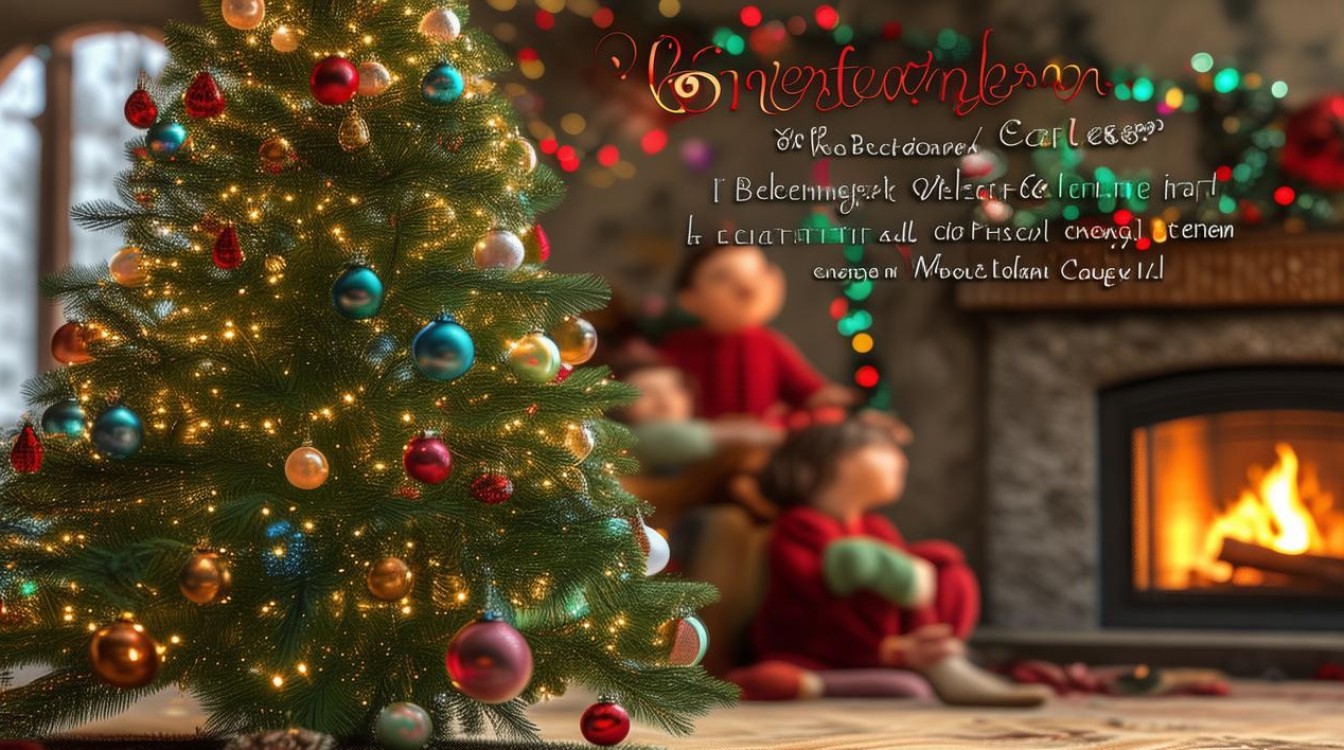Holidays and celebrations are universal experiences that bring people together across cultures. Whether you're learning English for travel, work, or personal enrichment, understanding holiday-related vocabulary will enhance your communication skills. This guide covers essential terms for major global celebrations, seasonal events, and cultural festivities.

Winter Celebrations
The coldest season hosts some of the most widely observed holidays worldwide.
Christmas (December 25th)
- Carol: Traditional festive songs
- Mistletoe: A plant hung as decoration, under which people kiss
- Eggnog: A creamy holiday drink made with milk, eggs, and spices
- Tinsel: Shiny metallic strips used for decoration
- Reindeer: Santa Claus's mythical flying animals
New Year's Eve (December 31st)
- Countdown: The act of counting backward to midnight
- Resolution: A personal commitment to change or improve
- Fireworks: Explosive devices producing colorful displays
- Toast: A ceremonial drink in honor of an occasion
- Midnight: 12:00 AM, the moment the new year begins
Hanukkah (Date varies)
- Menorah: A nine-branched candelabrum
- Dreidel: A spinning top used in games
- Latkes: Potato pancakes, a traditional food
- Gelt: Chocolate coins given as gifts
Spring Festivals
As nature renews itself, cultures celebrate rebirth and new beginnings.
Easter (Date varies)
- Bunny: The symbolic animal of Easter
- Hunt: The activity of searching for hidden eggs
- Basket: Container for Easter treats
- Lilies: Flowers associated with the holiday
- Chocolate: The most popular Easter candy
Passover (Date varies)

- Seder: The ceremonial Passover meal
- Matzah: Unleavened bread
- Plagues: The ten biblical plagues recounted during celebrations
- Haggadah: The text read during Seder
Nowruz (March 20-21)
- Haft-sin: A table setting with seven symbolic items
- Sabzeh: Sprouted wheat or lentils representing rebirth
- Samanu: A sweet pudding made from wheat germ
Summer Observances
The warmest months feature celebrations of independence and cultural pride.
Independence Day (July 4th in U.S.)
- Parade: A celebratory procession
- Barbecue: Outdoor cooking method
- Patriotism: Love for one's country
- Stars and Stripes: Nickname for the American flag
Bastille Day (July 14th in France)
- Tricolore: The French flag
- Firemen's Ball: Traditional celebrations at fire stations
- Military Parade: The annual display on Champs-Élysées
Autumn Traditions
As harvests conclude, cultures give thanks and honor ancestors.
Halloween (October 31st)
- Costume: Special outfit worn for the occasion
- Trick-or-treat: Children's activity of collecting candy
- Jack-o'-lantern: Carved pumpkin with a light inside
- Haunted: Believed to be visited by ghosts
Thanksgiving (Fourth Thursday in November in U.S.)

- Turkey: The traditional main dish
- Cranberry: A tart berry used in sauces
- Stuffing: Bread mixture cooked inside poultry
- Gratitude: The spirit of thankfulness
Diwali (Date varies)
- Rangoli: Colorful floor designs
- Diya: Small oil lamps
- Puja: Religious ceremony
- Firecrackers: Explosives used in celebrations
Cultural Celebrations
Beyond seasonal events, these cultural holidays have global significance.
Chinese New Year (Date varies)
- Red envelopes: Monetary gifts in red packets
- Lion dance: Traditional performance
- Lantern: Decorative light fixtures
- Reunion dinner: Family meal on New Year's Eve
Oktoberfest (September-October in Germany)
- Lederhosen: Traditional leather shorts
- Pretzel: A type of baked bread product
- Stein: A large beer mug
- Oompah: Traditional Bavarian music
Religious Observances
Major world religions have distinct holiday vocabularies.
Ramadan (Date varies)
- Iftar: The evening meal breaking the fast
- Suhoor: The pre-dawn meal
- Eid: The festival ending Ramadan
- Mosque: Muslim place of worship
Vesak (Date varies)

- Dana: The practice of giving
- Bodhi tree: The tree under which Buddha attained enlightenment
- Lantern release: Floating lanterns into water or sky
Universal Holiday Terms
These words apply to multiple celebrations worldwide:
- Festive: Having a celebratory atmosphere
- Ceremony: A formal event marking an occasion
- Tradition: Customs passed through generations
- Decoration: Items used to adorn spaces
- Gathering: A coming together of people
Understanding these terms will help you participate in conversations about holidays, comprehend English media during festive seasons, and share your own cultural traditions with English speakers. The vocabulary connects to food, clothing, activities, and symbolic objects that make each celebration unique.
When learning holiday words, pay attention to their pronunciation and spelling variations between British and American English. Some terms have specific cultural contexts that shouldn't be generalized across all celebrations. For instance, while many cultures have midwinter festivals, not all involve Christmas trees or gift-giving.
The best way to master this vocabulary is through immersion. Watch holiday episodes of English-language TV shows, read greeting cards, and listen to seasonal music. Many communities welcome visitors at cultural festivals, providing excellent opportunities to hear these words in context.
Holiday vocabulary reflects what societies value - family, heritage, spirituality, and community. As you learn these terms, you're not just memorizing words but gaining insight into English-speaking cultures. This knowledge makes you a more confident communicator during special occasions throughout the year.
English evolves constantly, with new holiday terms emerging annually. Stay curious about how celebrations adapt in our globalized world, where traditions often blend across borders. The vocabulary of holidays will continue expanding as cultures interact and create new ways to mark life's important moments together.



